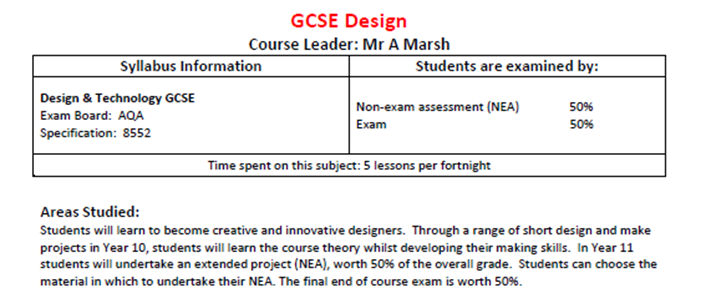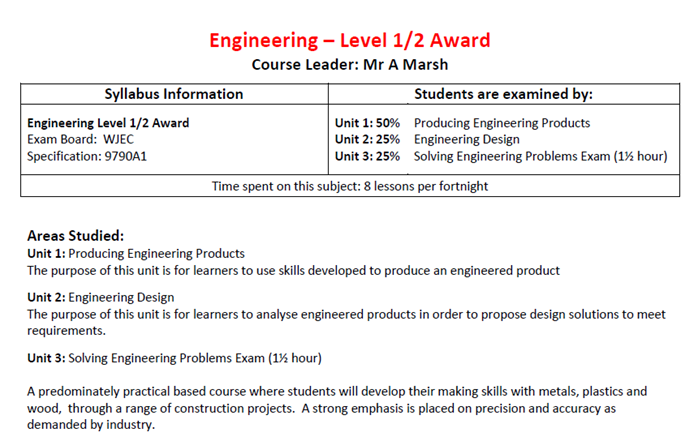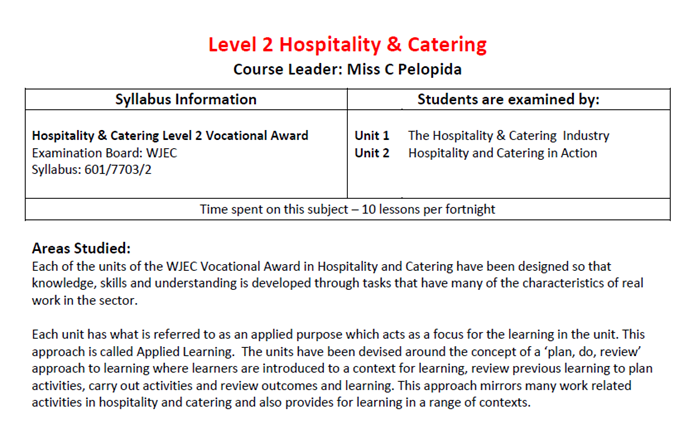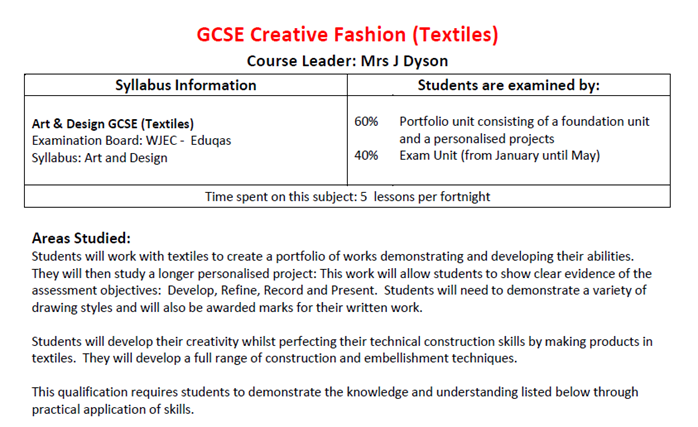Design and Technology
Moving from Primary to Secondary
Pupils will join us from KS2 having developed a basic level of hand making skills. They will have a starting knowledge of a range of materials and their uses. They will have had experience in making, both in the kitchen and using resistant materials. They will have a basic understanding what it means to eat healthily. Pupils will have some experience in drawing to communicate design concepts. As they enter KS3 we will measure their baseline skills and knowledge through a baseline test. Any gaps in skills and knowledge are addressed during the first project in Yr7.
Creating Subject Experts
Helping our learners become great design and makers.
Design aims to:
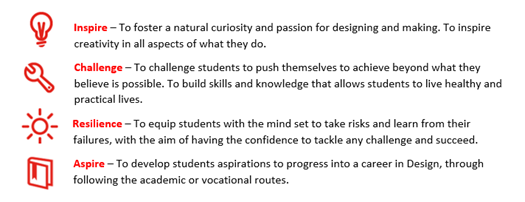
Subject Disciplines (Skills)
In Design we have 3 key disciplines:

Subject Substantives (Knowledge)
Design is taught on a rotation in Key Stage 3, going through the areas of Design, Engineering, Textiles and Food & Nutrition. Through a project based approach, learning takes place to develop our students into confident and competent designer-makers. Design is the application of knowledge to produce high quality, creative outcomes. The knowledge students are taught progresses through the year and are linked to the projects they are taking at the time. From Key stage 4 students can choose to specialise in the four areas to gain qualifications in these areas. We offer both academic and vocational routes into industry and further education. Students can aspire to a wide range of design and making based careers and our curriculum support students by providing clear pathways to these goals.
Students are taught to develop their designing and practical skills and are then challenged to demonstrate the skills within set projects. The level of challenge of the practical builds sequentially through the years, so that they become confident and competent in the processes they need to take the subject at the next key stage.
Students work in safe practical environments to build their resilience and confidence so that they can competently complete processes with independence and to a high level of precision.
Our providence of food strategy
“Through a set of engaging practical cooking experiences in Food & Nutrition all students finish KS3 with the knowledge and skills to be able to prepare and cook a range of healthy dishes to feed themselves and families, no matter their background”.
Design is predominately a skills based subject. Students work through carefully sequenced projects, to build the confidence and competence in the key skills disciplines – right.
To ensure confidence and competence, skills are revisited during projects throughout the key stages, with ever increasing levels of complexities. This helps students to practice skills and ensure mastery by the end of each key stage.
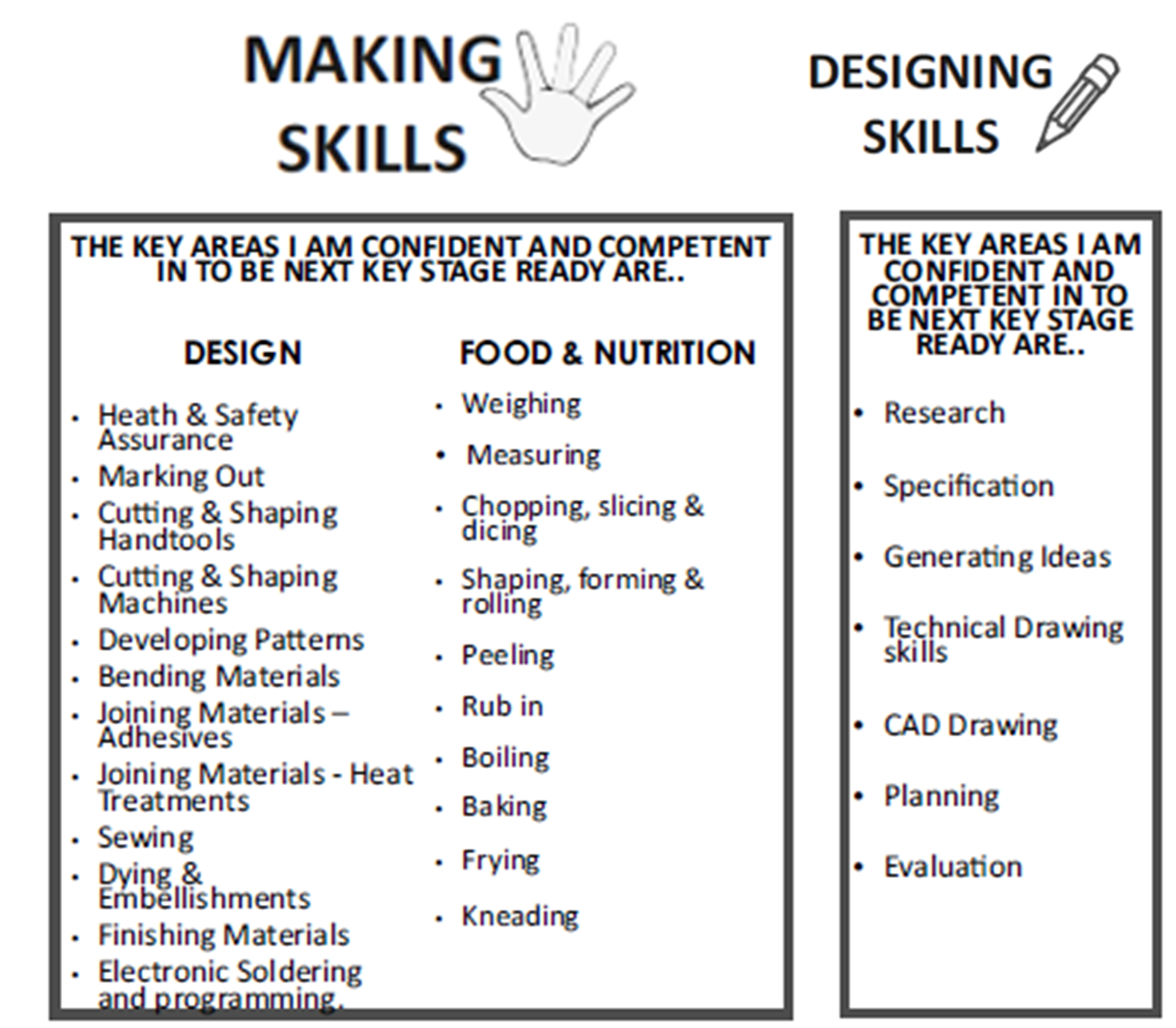
Throughout the Design curriculum the key knowledge disciplines, right, are taught and revisited. They are linked to the project they are doing at the time and they a given context by ensuring students undestand how the kbnowldge links to industries in the Design, engineering, textiles and hospitality sectors. Links to industry form our key context that runs constantly through all our material areas.
Knowledge is checked through regualr starters and RPE homework. At the end of each rotation, knowledge learnt is summarised and then tested with an end of rotation test.
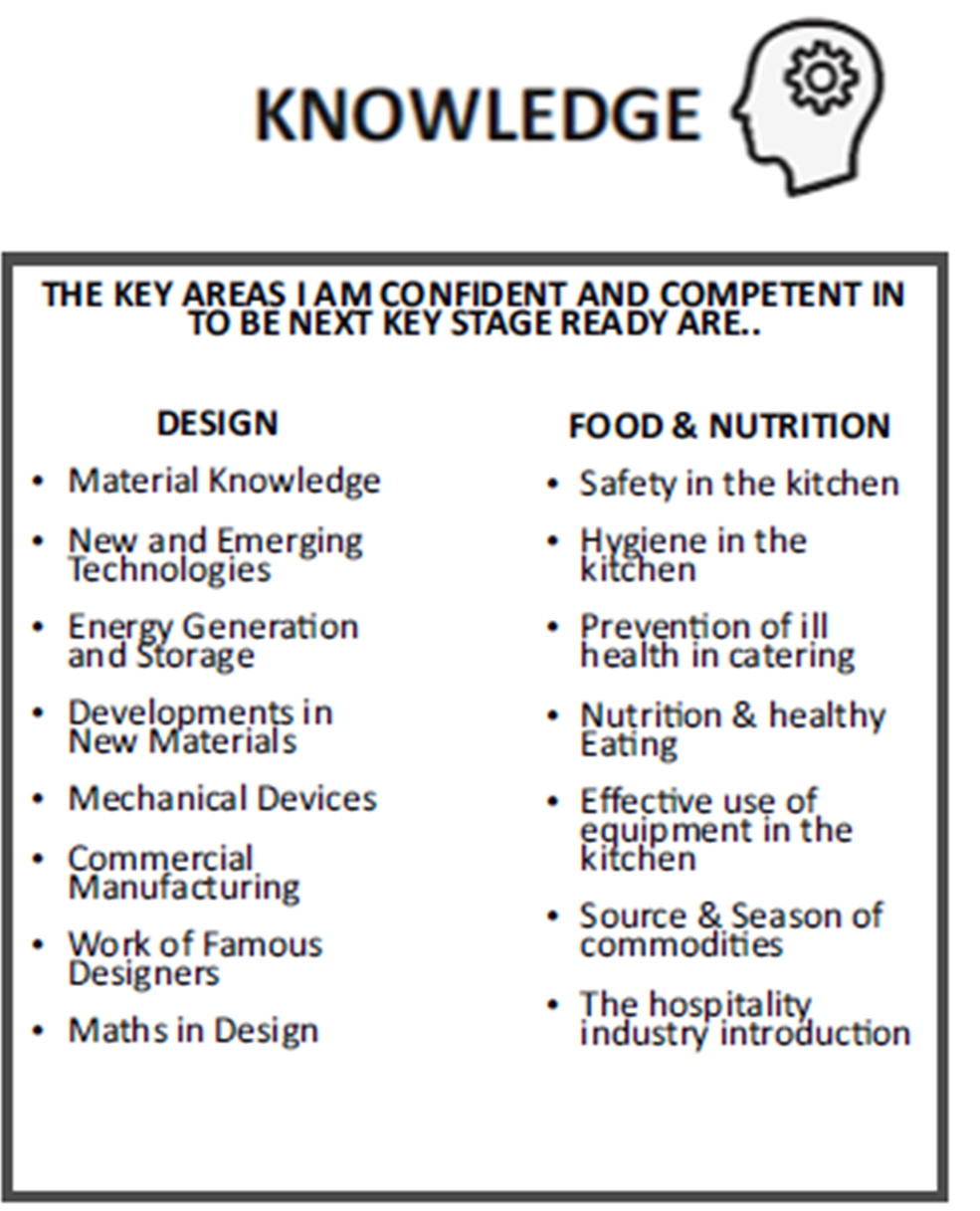
Roadmap
Image to follow
How we assess your child?
Assessment Grades KS3
Students complete assessments in each of their subjects at key points during the year which test their understanding of all the knowledge they have learnt to date (we call these cumulative assessments). We grade these assessments on a scale from 1-9 (9 being the highest). The assessments are designed so that each year they become more challenging and test students on their growing bank of knowledge.
Therefore, as an example, if your child achieves a grade 5 in an assessment in Year 7, we can predict confidently that they should go on and achieve at least a grade 5 at GCSE. This is providing they keep working hard and progressing. Please note: this prediction states “at least”. Students often achieve higher than this.
In years 7 – 9, in practical subjects (PE, Drama, Music etc.), we assess students on their practical ability and skills. This gives us a strong indication of how successful they would be if they chose one of these subjects as a GCSE option. However, in order to get a fuller view of their potential success, it is also important to consider their grades in the core subjects. This is because there is often a literacy, numeracy, or scientific element to the courses.
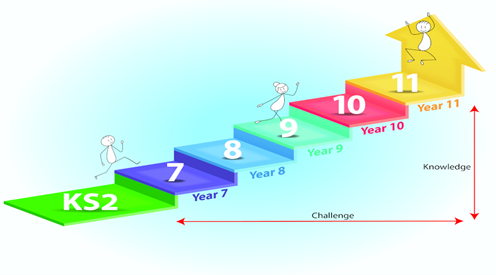
Assessment Grades in KS4
Students complete mock exams in each of their subjects at key points during the year which test their understanding of all the knowledge they have learnt to date. We grade these mock exams on a scale from 1-9 (9 being the highest). In the report you will see:-
- Target Grade: This is based on a student’s past performance. It is an aspirational but achievable target
- Mock Grade: The grade they achieved in the mock exam
- Predicted Grade: The grade a teacher believes a student will achieve in the final exam, if they maintain their current ATL and performance
Assessment Grades in KS5
Students complete mock exams in each of their subjects at key points during the year which test their understanding of all the knowledge they have learnt to date. We grade these mock exams on a scale from A*-E/Distinction* - Pass. In the report you will see:-
- Target Grade: This is based on a student’s past performance. It is an aspirational but achievable target
- Mock Grade: The grade they achieved in the mock exam
- Predicted Grade: The grade a teacher believes a student will achieve in the final exam, if they maintain their current ATL and performance
Exam Board Information
